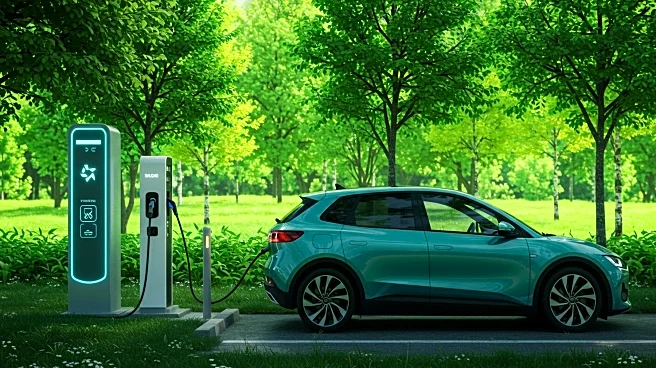What's Happening?
South America is experiencing a significant shift towards electric vehicle adoption, with several countries surpassing the 5% threshold for electric vehicle sales. Brazil, Uruguay, and Colombia have shown notable progress, with Brazil selling approximately 125,000 electric cars in 2024, accounting for 6.5% of new sales. Uruguay reached 13%, and Colombia surpassed 7%. This marks a significant change for a region previously lagging in electric vehicle adoption. The transition is supported by strong policy frameworks in countries like Chile, which mandates that all new light and medium vehicles sold after 2035 be zero emission. Colombia requires a third of government fleets to be electric by 2025 and targets 100% electric buses by 2035. Uruguay has leveraged its nearly 100% renewable grid with tax incentives to achieve double-digit EV sales shares.
Why It's Important?
The shift towards electric vehicles in South America is crucial for reducing carbon emissions and pollution, given the region's reliance on renewable energy sources. This transition is expected to bring immediate environmental benefits and align with global trends towards cleaner transportation. The development of a local battery supply chain, supported by lithium reserves in Chile, Argentina, and Bolivia, could further enhance the region's capacity for electric vehicle production. Additionally, the move towards electrification is likely to stimulate economic growth by attracting investments in domestic auto manufacturing, particularly in Brazil, which is becoming a hub for EV production.
What's Next?
Looking forward, passenger EV sales are projected to grow significantly, with expectations of reaching 10-20% by 2028 and about half of new sales by 2035. By 2040, most new passenger cars and nearly all buses in major cities are anticipated to be electric. The transition will be shaped by policy choices, industrial investment, and economic conditions. Automakers are expected to treat South America as an electric market by default, especially with Chile's 2035 ICE ban. The region's laggards will need to converge as new combustion models become scarce.









